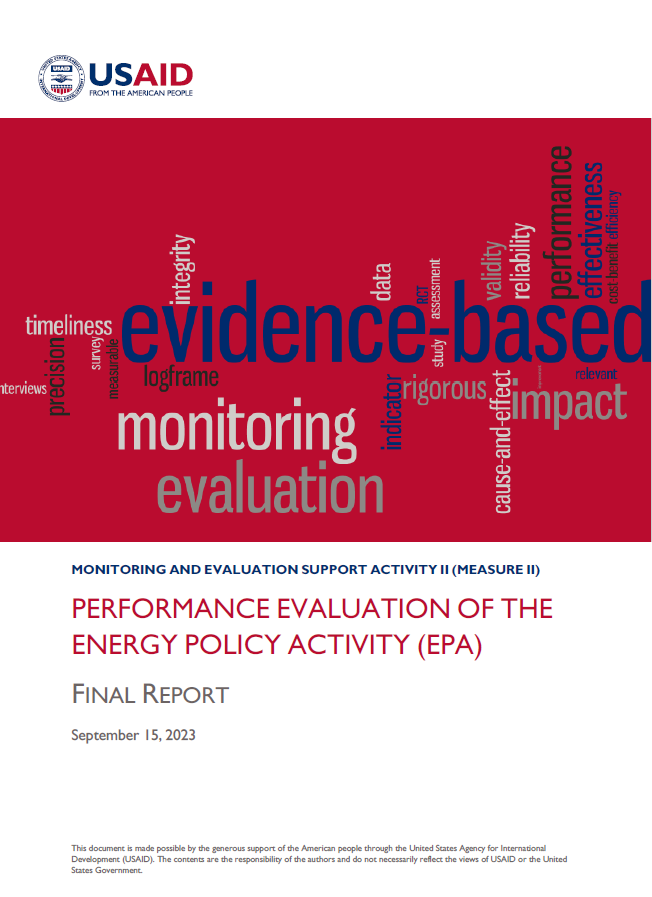
PERFORMANCE EVALUATION - EPA
|
The midterm performance evaluation of the $8.65 million, 5-year Energy Policy Activity (EPA), funded by the United States Agency for International Development in Bosnia and Herzegovina (USAID/BiH) and implemented by DT Global, reviewed the Activity’s progress toward contractual objectives in its first three-and-a-half years of implementation. The evaluation yielded the following conclusions: 1. EPA’s technical assistance (TA) is uniformly very highly rated by stakeholders. 2. The transformation of the BiH energy sector and its harmonization with the European Union (EU) acquis continue to encounter political obstacles, most notably in connection with the regulatory arrangements in the natural gas sector, continuation of the work on the Southern Gas Interconnection, and establishment of an electricity exchange in BiH. 3. Recognizing their capacity limitations, the key informants, without exception, asked for continued TA to fill knowledge and capacity gaps on a broad and diverse range of topics, including unbundling of public (gas and electricity) utilities, functioning of distribution grids in the condition of increased capacity of producers from renewable energy sources (RES), and cybersecurity. 4. BiH also needs TA to enable investment into emergent energy technologies, such as hydrogen, biogas, biomass, and batteries. 5. The common approach to energy sector reform makes both the U.S. Government and the EU more effective when engaging with the Governments in BiH. Closer donor coordination will be beneficial with the entry of a major new EU TA project. |
|
6. EPA’s cooperation with other USAID Activities has so far been fruitful but limited, and Diaspora Invest 2, E-Governance, and Local Governance Assistance Activity offer potential for joint action to support RES investors. 7. EPA’s public information interventions helped raise the visibility of the energy sector in the media, but the general public is still poorly informed about energy issues and barely aware of the opportunities and risks of the green transition, which allows local politicians to perpetuate the political impasse and retain control of the sector’s resources. The final evaluation report is available below: Click on the image above to download the report
|





